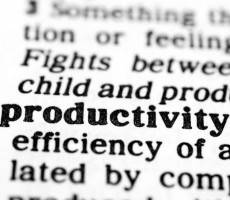July 5, 2016
This Friday will be the UK’s least productive for the whole Summer 0
 This Friday will be the UK’s least productive day for the whole Summer, according to a study by HR and payroll firm Moorepay. The study is based on the plans UK workers say they have to watch the various sports events on that day, which include Wimbledon, the British Formula 1 Grand Prix practice and Tour de France. The previous evening sees the semi final between Germany and France at Euro 2016. The report claims that one-third of the staff are planning on watching events while at work, with one in six (17 percent) admitting their productivity will drop as a result. The authors suggest that firms are underestimating the impact, with 79 percent believing productivity in their company will be unaffected. With, on average, 10 per cent of staff on leave any given week and another one in ten planning on calling in sick to watch sport, businesses face staff shortages and prolonged dips in productivity, claims the report.
This Friday will be the UK’s least productive day for the whole Summer, according to a study by HR and payroll firm Moorepay. The study is based on the plans UK workers say they have to watch the various sports events on that day, which include Wimbledon, the British Formula 1 Grand Prix practice and Tour de France. The previous evening sees the semi final between Germany and France at Euro 2016. The report claims that one-third of the staff are planning on watching events while at work, with one in six (17 percent) admitting their productivity will drop as a result. The authors suggest that firms are underestimating the impact, with 79 percent believing productivity in their company will be unaffected. With, on average, 10 per cent of staff on leave any given week and another one in ten planning on calling in sick to watch sport, businesses face staff shortages and prolonged dips in productivity, claims the report.






































July 5, 2016
Employers need more help in navigating the Apprenticeship Levy 0
by David Allison • Comment, Workplace
More →